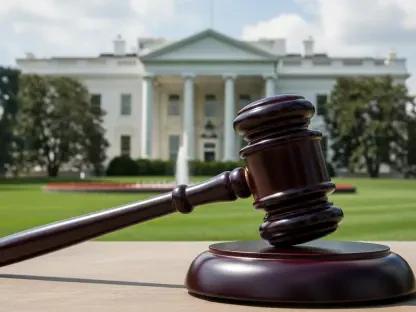Setting the Stage for a New Era of Collaboration
In an era where economic strength and national security are increasingly intertwined, a groundbreaking partnership between the United States and Greece has emerged as a beacon of strategic innovation. The signing of a pivotal economic security declaration in Athens on November 7 marks a significant milestone, addressing the urgent need to safeguard critical technologies and supply chains amid rising geopolitical tensions. This agreement not only highlights the shared vulnerabilities faced by allied nations but also underscores a mutual commitment to leveraging private investment and technological advancement for global stability. It sets the tone for a deeper exploration of how economic statecraft can redefine security in a rapidly evolving world.
The current state of the industry reveals a pressing demand for secure technology ecosystems and resilient supply chains, as nations grapple with adversarial influences and dependencies. Emerging technologies, particularly artificial intelligence (AI), have become central to economic competitiveness, while critical infrastructure remains a prime target for external threats. This declaration between the U.S. and Greece arrives at a crucial juncture, aiming to align economic priorities with security imperatives through targeted collaboration. The focus on private-sector engagement and innovation signals a shift toward sustainable, market-driven solutions in addressing these challenges.
Deep Dive into Strategic Objectives and Trends
Building Trusted Technology Ecosystems
A core pillar of this landmark agreement is the emphasis on fostering trusted technology ecosystems, with AI at the forefront of this initiative. Both nations have pledged to promote responsible development and deployment of such technologies, ensuring they align with democratic values and security standards. This commitment extends to safeguarding sensitive innovations from exploitation by adversarial entities, a growing concern in the global tech landscape. The declaration outlines specific measures to enhance data security and protect intellectual property, positioning the partnership as a model for international cooperation.
Beyond AI, the agreement prioritizes the development of secure information and communication technology (ICT) systems, including fiber-optic networks and data centers. These components are vital for maintaining control over digital infrastructure, a key determinant of national sovereignty in the digital age. Collaborative efforts in this domain are expected to drive innovation while mitigating risks associated with cyberattacks and espionage. Industry forecasts suggest that investments in secure ICT frameworks will grow significantly over the next few years, reflecting a broader trend among allied nations.
The involvement of private-sector leaders in these initiatives is a notable trend, as companies are expected to play a crucial role in scaling technological advancements. By aligning government policies with industry capabilities, the U.S. and Greece aim to create a robust ecosystem that supports both economic growth and security. Data from recent industry analyses indicate a rising demand for public-private partnerships in tech security, with projections showing a potential increase in related investments by 30% from this year to 2027.
Securing Supply Chains and Economic Partnerships
Another critical focus of the declaration is addressing vulnerabilities in global supply chains, particularly in industries like semiconductors, energy, and advanced manufacturing. The agreement seeks to eliminate coercive dependencies and single points of failure that could disrupt economic stability, a concern amplified by recent global disruptions. Joint projects in logistics, mineral processing, and renewable energy are set to strengthen bilateral ties while reducing reliance on untrustworthy sources.
This strategic collaboration also aims to counter unfair trade practices, such as state-backed overcapacity and dumping, which undermine competitive markets. By fostering an open investment climate, the U.S. and Greece intend to attract private capital for flagship projects that create jobs and drive economic expansion. Industry reports highlight that supply chain resilience initiatives could contribute to a 15% reduction in dependency risks for critical materials within the next five years, offering a promising outlook for both nations.
The role of economic collaboration extends to building long-term partnerships that prioritize mutual growth over short-term gains. Sectors like advanced manufacturing are poised for transformation through shared expertise and resources, with pilot programs already under discussion. These efforts reflect a broader industry trend toward regional alliances that enhance security while capitalizing on emerging market opportunities, ensuring a balanced approach to global trade dynamics.
Navigating Implementation Challenges
Despite the ambitious goals, implementing this declaration faces several hurdles, including geopolitical tensions that could complicate bilateral efforts. External threats from nations seeking to dominate critical technology sectors pose a persistent risk, requiring vigilant coordination between the U.S. and Greece. Aligning economic policies with security needs also demands careful navigation of differing national priorities and regulatory frameworks, a challenge that could slow progress if not addressed proactively.
Unfair trade practices remain a significant obstacle, as state-subsidized competition distorts markets and disadvantages fair players. The declaration commits to countering these practices through transparent policies and international cooperation, though enforcement remains complex in a fragmented global economy. Industry experts note that maintaining a level playing field will require innovative strategies, such as leveraging trade agreements and sanctions to deter exploitative behaviors.
To overcome these challenges, fostering resilient supply chains and an open investment environment is essential. This involves not only government-led initiatives but also active engagement with private stakeholders to ensure adaptability to changing conditions. Current data suggests that nations investing in diversified supply networks are better positioned to withstand disruptions, a lesson that this partnership aims to apply through targeted policies and collaborative projects.
Policy Framework and Industry Implications
The declaration establishes a comprehensive policy framework to guide economic and tech security collaboration, emphasizing fair trade practices and adherence to international commerce standards. Regulatory measures focus on countering external influences that threaten national interests, with strict compliance mechanisms to ensure accountability. This framework is designed to build trust among allied nations, creating a cohesive approach to shared challenges in the global market.
For industries, these policies translate into clearer guidelines for investment and innovation, particularly in high-stakes sectors like AI and critical infrastructure. Companies operating within this partnership can expect enhanced support for secure practices, alongside incentives for contributing to flagship projects. The ripple effect of such policies is likely to influence global standards, as other nations observe and potentially adopt similar measures to strengthen their own economic defenses.
Compliance with shared security protocols also impacts how businesses approach cross-border operations, necessitating alignment with both U.S. and Greek regulations. This dual framework, while complex, fosters a predictable environment for long-term planning and investment. Industry analysis predicts that such regulatory clarity could boost confidence among investors, potentially increasing foreign direct investment in tech-driven sectors by 20% over the coming years.
Reflecting on Outcomes and Charting the Next Steps
Looking back, the U.S.-Greece Economic Security Declaration stood as a defining moment in aligning economic tools with national security imperatives. It carved a path for collaboration in emerging technologies and supply chain resilience, setting a precedent for how allied nations could tackle global challenges together. The emphasis on private-sector involvement and fair trade practices provided a practical foundation for sustainable growth, even as implementation faced geopolitical and economic hurdles.
Moving forward, actionable steps include deepening public-private partnerships to accelerate innovation in AI and critical infrastructure. Both nations need to prioritize the development of adaptive policies that can respond to evolving threats and market shifts. Establishing regular bilateral forums to assess progress and address barriers is seen as a vital mechanism for maintaining momentum in this partnership.
Additionally, expanding the scope of this collaboration to include other allied nations offers a promising avenue for amplifying impact. By sharing best practices and resources, the U.S. and Greece could lead a broader coalition focused on tech security and economic stability. This forward-thinking approach aims to ensure that the gains achieved through this declaration will endure, shaping a safer and more prosperous global landscape for years to come.









